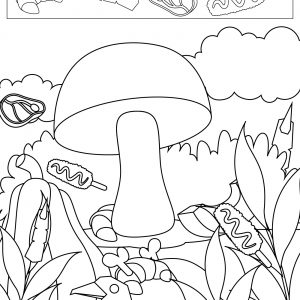Embracing the Fourth Trimester: A Loving Guide to Postpartum Recovery and Self-Care
The Hidden Journey After Birth
Welcoming a newborn into the world is nothing short of miraculous—but for many mothers, the days and weeks that follow can feel overwhelming, confusing, and even lonely. Dubbed the “fourth trimester,” this period is a critical phase of physical healing and emotional adjustment. In this article, we’ll explore strategies to help new moms thrive as they navigate postpartum recovery, bonding with baby, and reclaiming their sense of self.

Understanding the Fourth Trimester
Becoming a parent extends far beyond the moment you meet your little one. In fact, the six to twelve weeks after birth—commonly called the “fourth trimester”—come with their own unique challenges and joys.
- Physical Healing: Your body is hard at work repairing tissues, regulating hormones, and adjusting to life without pregnancy. It’s normal to experience fatigue, soreness, and hormonal mood swings.
- Emotional Shifts: From overwhelming love to unexpected tears, emotional highs and lows are par for the course. Postpartum anxiety and baby blues affect up to 80% of new mothers, so you’re far from alone if you feel raw or weepy.
- Reclaiming Identity: You’re not just a mom—you’re still you. Balancing your new role with self-care, hobbies, and relationships can be tricky but essential.
Safety-First: Postpartum Physical Recovery
Your body has accomplished something extraordinary. Now it needs gentle care to heal and regain strength.
- Rest When You Can: Sleep deprivation is real—but napping when baby naps can help you catch up. Don’t feel guilty for stepping back from chores or screen time to recharge.
- Gentle Movement: Short walks around the block or simple pelvic floor exercises can boost circulation, ease stiffness, and lift your mood. Always check with your healthcare provider before starting any workouts.
- Nutrition and Hydration: Focus on nutrient-dense foods—lean proteins, whole grains, colorful fruits, and vegetables—to fuel breastfeeding and recovery. Keep a water bottle handy, especially if you’re nursing.

Emotional Self-Care: From Baby Blues to Postpartum Joy
Emotional ups and downs are part of the package—but you don’t have to ride the rollercoaster alone.
- Normalize Your Feelings: It’s okay to feel stressed, sad, or even resentful at times. Sharing your experiences with trusted friends, family, or a postpartum support group can remind you that these feelings usually ebb and flow.
- Mindfulness and Breathing: Five minutes of deep, intentional breathing can calm racing thoughts. Try a simple box-breathing pattern—inhale for four counts, hold for four, exhale for four, hold for four—and repeat.
- Professional Support: If you find yourself stuck in despair, consider talking to a therapist or counselor who specializes in postpartum mental health. There’s no shame in asking for help when you need it most.
Building Baby Bond: Skin-to-Skin and Feeding Connection
Bonding with your newborn fuels both your emotional well-being and baby’s development.
- Skin-to-Skin Contact: Placing your baby on your bare chest calms both of you by regulating their heartbeat and temperature. These quiet moments strengthen your attachment.
- Responsive Feeding: Whether you choose breastfeeding, pumping, or formula feeding, try to tune into your baby’s hunger cues—rooting, sucking motions, or fussiness—rather than strictly following a clock. This responsive approach builds trust.
- Tummy Time Magic: Short supervised periods on their belly help babies develop muscle control and motor skills. It also gives you precious eye-to-eye engagement.

Partner and Community: Sharing the Load
No one should parent in isolation. A supportive network can lighten your load and lift your spirits.
- Delegating Tasks: Let visitors help with laundry, dishes, or errands. Even small gestures—like a dropped-off meal—can feel like a lifeline.
- Partner Check-Ins: Honest communication with your partner about needs and feelings prevents resentments. Take turns winding down baby’s bedtime routine so you both get a breather.
- Local Resources: Many communities offer mother-baby groups, lactation consultants, and postpartum doulas. Online forums can also connect you with peers facing similar challenges.

Rediscovering You: Gradual Return to Pre-Baby Life
As your baby grows, so can your sense of self beyond motherhood.
- Micro “Me Time”: Even five minutes with a cup of tea, a chapter of a book, or a favorite song can recharge you. Sneak in these moments whenever possible.
- Creative Outlets: Journaling, drawing, or dancing in the living room can help process the whirlwind of emotions that accompany new parenthood.
- Setting Realistic Goals: Don’t pressure yourself to hit the gym, host dinner parties, and nail your work projects all at once. Pick one small personal goal—like a weekly phone call with a friend—and build momentum from there.

Conclusion
The fourth trimester is an extraordinary journey filled with tender firsts and unexpected hurdles. By prioritizing physical healing, emotional self-care, baby bonding, and shared support, you can transform these weeks into a foundation of strength and joy. Remember: each tear and triumphant smile weaves a story of resilience and unconditional love. You’re writing the first chapter of your new life as a parent—and you’re doing an incredible job.





